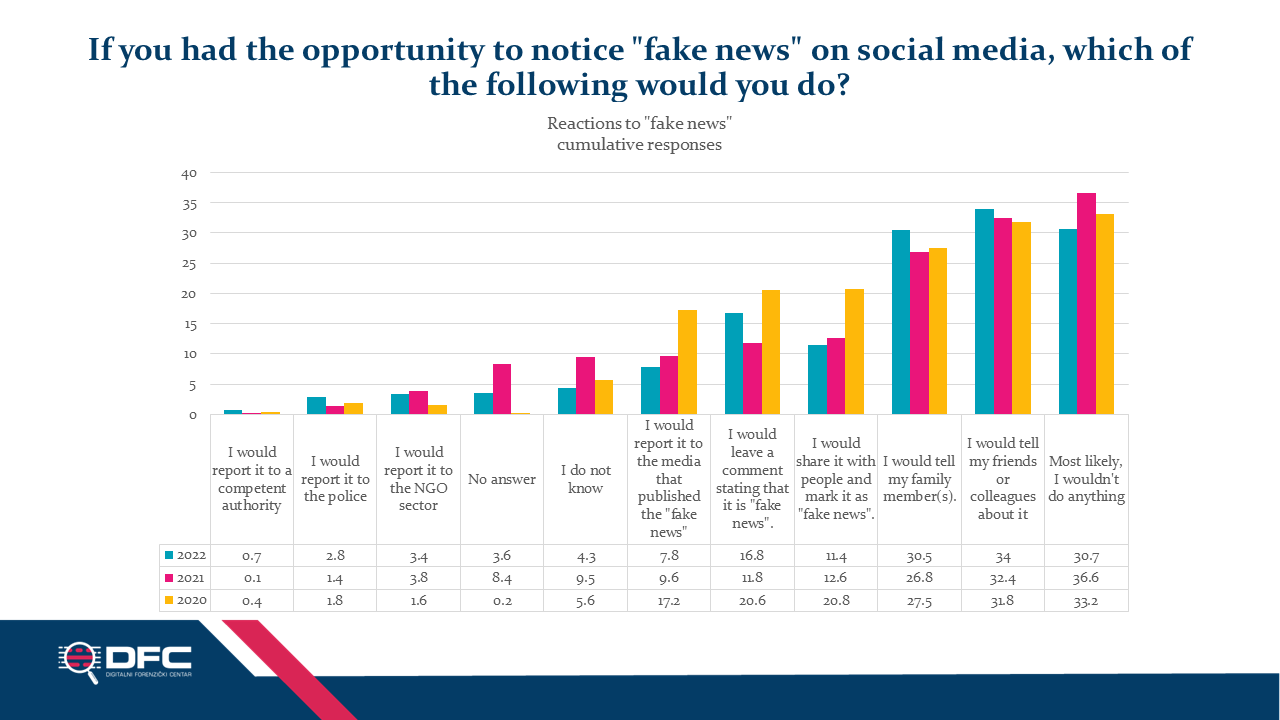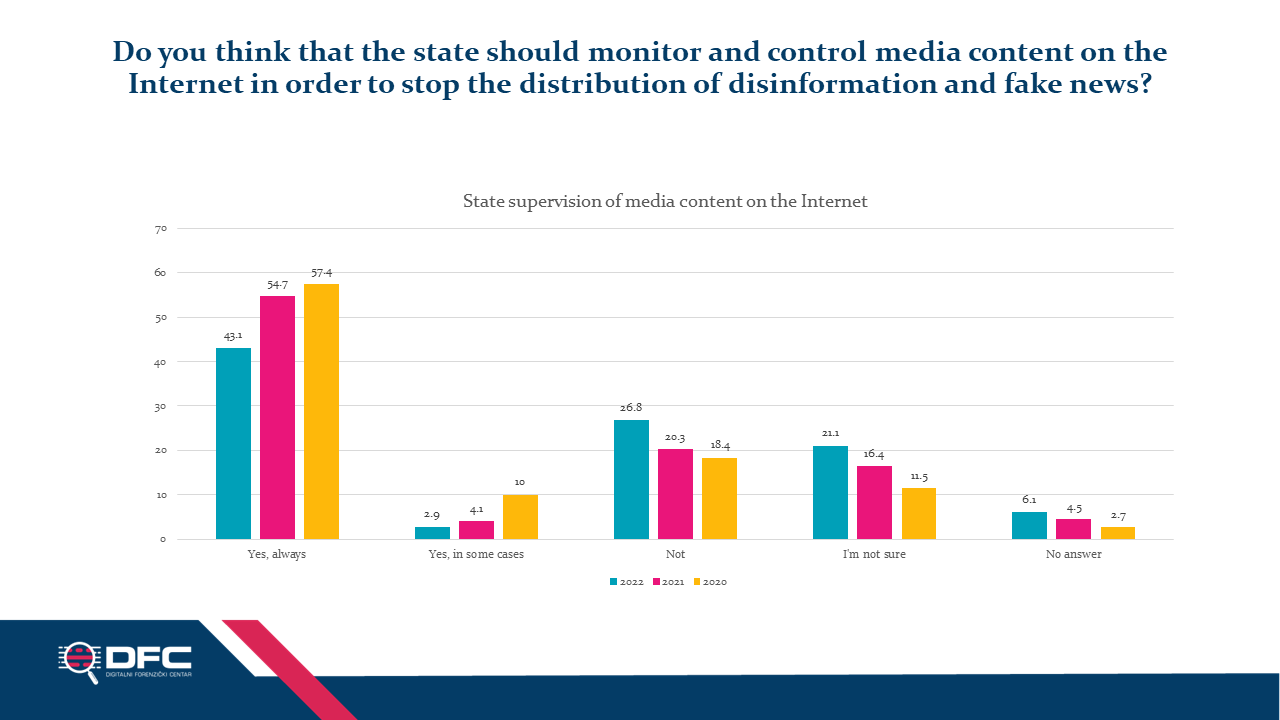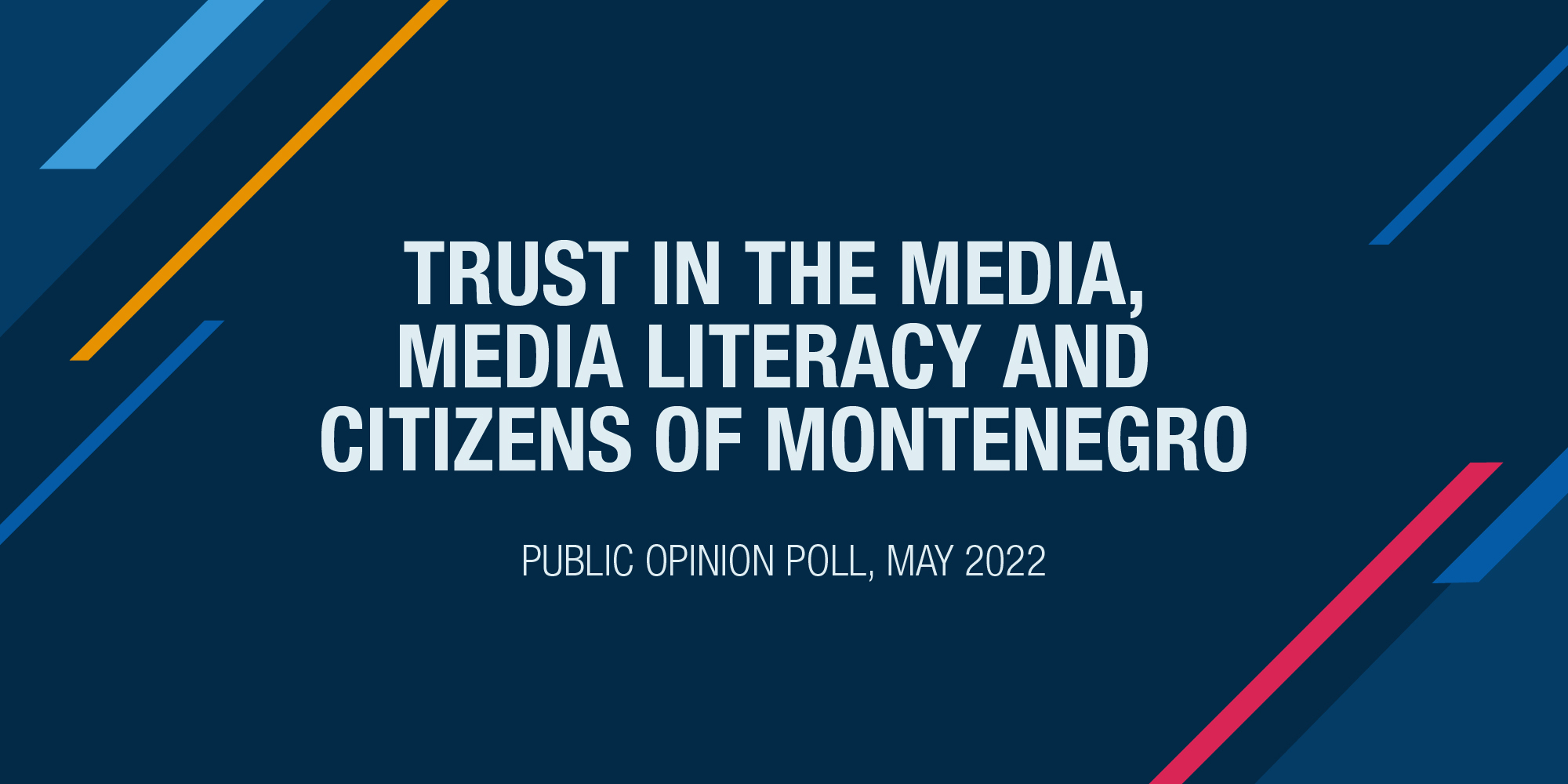More than half of the citizens believe that the Montenegrin media have political affiliations, according to the DFC public opinion survey, which you can download HERE.
The survey of public opinion on the use of media and media literacy in 2022 is a longitudinal study of monitoring the representation of the views of the citizens of Montenegro on the use of media and a critical assessment of available media content, which was conducted on a representative sample of adult citizens (1022). The Digital Forensic Center conducted the research from March 30 to April 15, 2022.
According to the answers received, more than three-quarters of citizens state television as the medium they use every day. However, that percentage (76.5%) is significantly lower compared to the data from 2021 (87.8%), especially in 2020, when 91.6% watched television daily.
Regarding other media, almost two-thirds of respondents use social networks (64.7%). Portals are followed by nearly 60% of respondents, while a smaller number listen to the radio (46.7%) and read the daily press (28.6%).

Analyzing the answers on the level of trust in the media, the highest average score was given to radio (3.35) and television (3.23). In contrast, citizens gave the lowest trust score to social networks (2.84). Comparing the data from the previous two years, we note a slight increase in the average rating of trust in television.


When it comes to portals, after Vijesti, citizens trust the CDM portal the most (14.9%), followed by RTCG, Portal Analitika, and IN4S.

Only a third of respondents (32.8%) believe that the Montenegrin media are objective and professional in their reporting and adhere to the code of ethics. In comparison, every fourth respondent (25.3%) negatively evaluates media reporting in the context of professionalism, ethics, and objectivity.

Although 41.5% of citizens stated that the media does not influence the formation of their attitudes, the research shows that the influence of the media on the personal attitudes of citizens is growing compared to the previous two years of measurement.

More than half of the Montenegrin citizens (52%) believe that Montenegrin media have political affiliations. As many as 48% of respondents believe that the media work in the interests of political structures. Only 7.5% of respondents believe that the media work in the interest of citizens.


A significant percentage of respondents believe that the media often or almost always report differently on the same event compared to other media (38.4%). A third of respondents stated that the media mix facts with rumors in their reporting. At the same time, a slightly smaller percentage believes that the media do not thoroughly check the information they publish.

The research indicated that more than three-quarters of citizens noticed fake news in the Montenegrin media at least once, which means that compared to 2021, the number of citizens who see fake news daily or often has increased. Most respondents stated that it happened on the Internet (65.3%), while fake news is the least represented on television, radio, and print media.

Almost every third of respondents assess that the problem of fake news and disinformation is a reasonably pronounced problem (29.4%), and 7.9% of respondents believe that this problem is fully pronounced.

A third of the respondents stated that they would most likely not do anything if they noticed fake news on social networks and would probably ignore such information. As a way of reacting to fake news, about a third of respondents indicated that they would talk about it with their friends and colleagues and family members. That share of respondents is slightly lower compared to data from 2021, when 36.6% of respondents had the same opinion.

Although the percentage of citizens who believe it is necessary for the state to continuously monitor and control media content on the Internet to stop disinformation and fake news has decreased compared to the previous two years, that number is still relatively high (43.7%).
On the other hand, the number of respondents who believe that the state should not control media content on the Internet is increasing, while every fifth respondent has no opinion. Citizens who assess that control of media content is necessary sometimes emphasize that they would not support any form of censorship.


